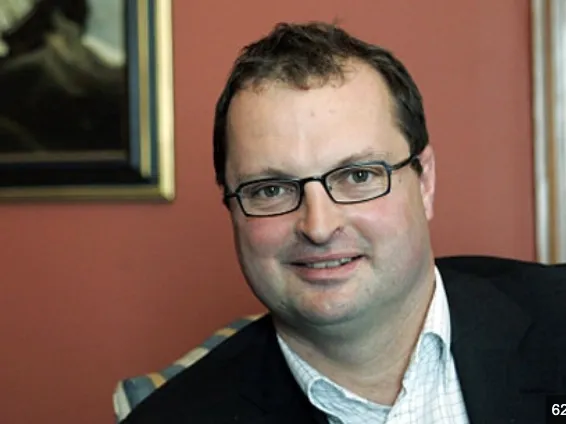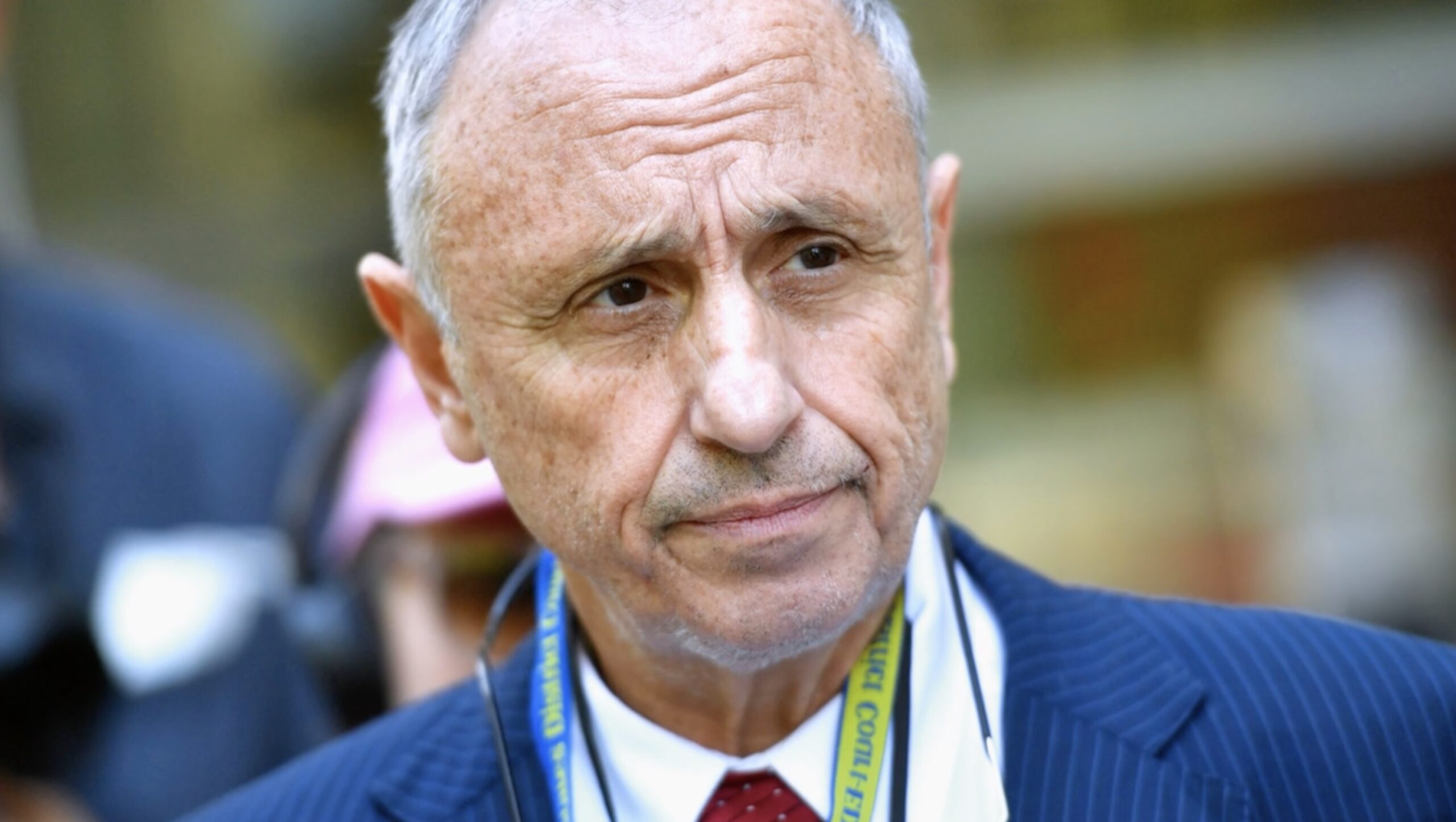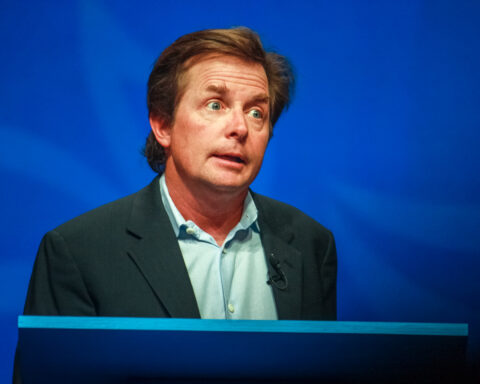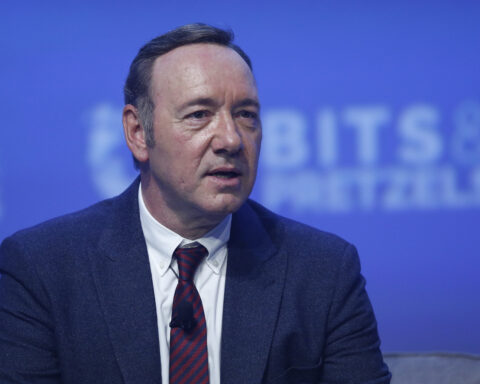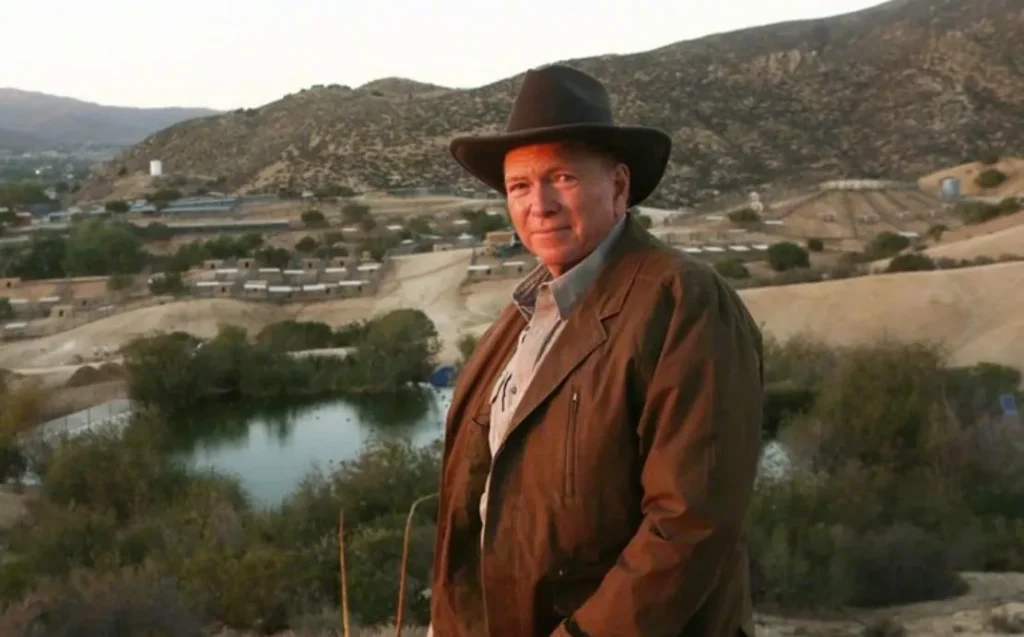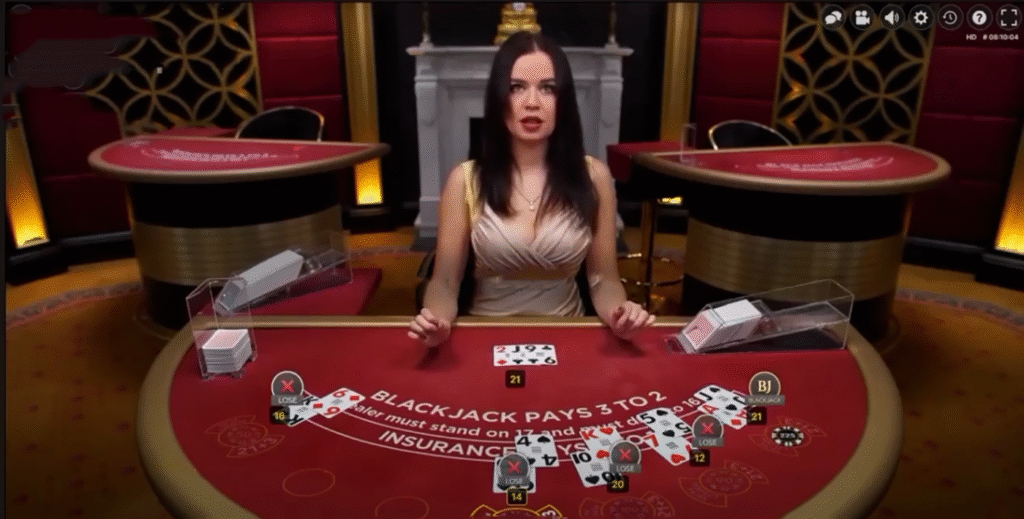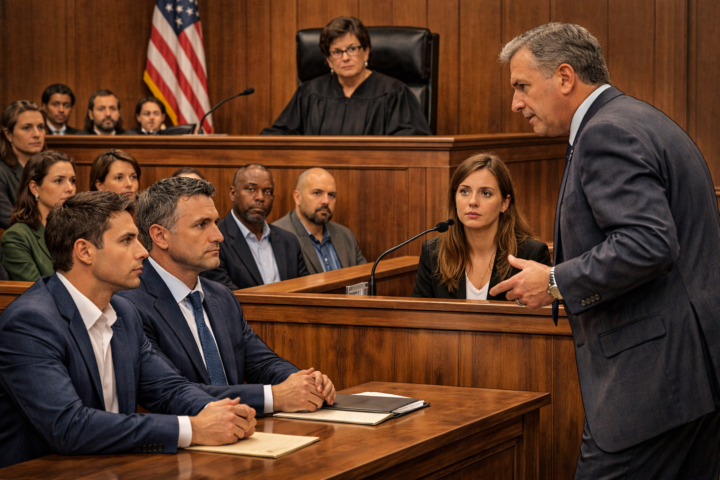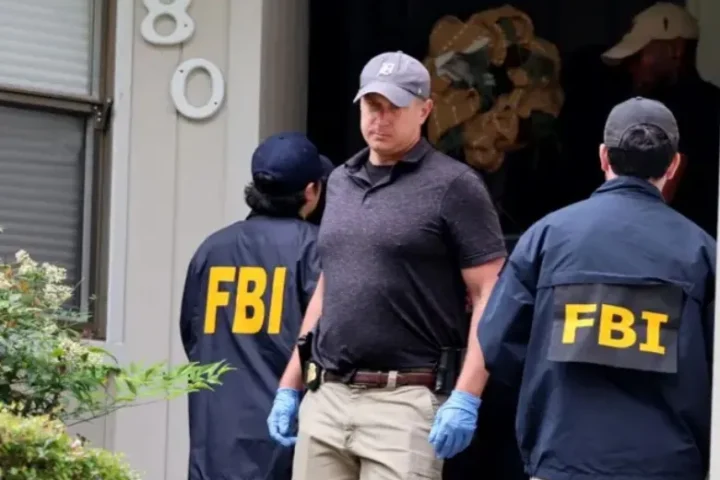By Frank Parlato
The Question
One of my readers sent me an X questionnaire, which I received below.
X Poll
Do you support and vote Yes or No that Mark Branson, the head of the German Banking Authority (BaFin) should ban
Radovan Vitak from all business activity in Germany to avoid another WireCard debacle, where the CEO stole billions and fled Germany to Russia? Should Mark Branson avoid another WireCard debacle?
I had no opinion on the question. But it piqued my curiosity.
The issue seems to be about money and silence.
The Silence
Vitek and his company, CPI Property Group, said it was a smear campaign. Three articles had been posted on a small website called International Policy Digest.
The stories said Radovan Vítek was close to Putin. That he moved money through Russia. That his company dodged sanctions.
The writer used the name William Fry. No one knew if he was real. The company wanted to know.
Vitek went to court to find out who wrote the stories. But why?
They filed papers in a federal court in Virginia to obtain the names, including the site’s editor, the publisher, and anyone who had helped.
CPI said it was all false.
They said they had one property in Russia, a small hotel that they had bought long before the war.
It was worth sixteen million euros, a fraction of their holdings. They said they shut it down, cut it off, and took the loss.
They refused to sell it because selling would result in money being sent back to Moscow through taxes. CPI said they would not sell to help the Kremlin.
They said the Fry stories ignored that.
But why use a cannon to shoot a mouse?
People say a lot of things; why go to this extreme?
Vitek’s company owns hundreds of buildings across Europe — including offices, malls, and apartments. More than twenty billion euros in property.
He said bad headlines could move their stock and markets. That’s why they went to court. They said the website took anyone’s word for truth.
That it printed “opinions backed by anecdote.” No fact-checking. No verification.
Just rumors dressed as reporting.
But with his wealth and armed with the truth, Vitek could offset what one small website and three small stories had to say about him.
He was successful. He suppressed the stories. They have been taken down. It is unknown whether he discovered who Fry is.

The Man
Radovan Vítek was born in Czechoslovakia, which was still under Soviet control at the time. He says he despised the Russians, despised Putin.
But instead of trying to prove it, he fought to take down the stories. Not to rebut but to suppress the stories.
That, of course, is a perfect way to enlarge a story. It is not how we fight in America.
When they saw the story, CPI’s lawyers wrote to the website, requesting that they remove the stories. The site never replied.
Now Vítek and his company plan to sue in England. They’ll claim defamation and conspiracy.
I am beginning to take a look at Radovan Vitek.
The Rise
Vítek was born in 1971 in the Czech lands. He grew up in a country changing fast, where men who moved quickly could become rich.
He began in Slovakia during the period of privatization. Paper vouchers became ownership. Factories and buildings changed hands for little more than the signing of documents.
In 1996, he bought a small fund named Boleslavsko. He turned it into something CPI. Then he bought land and buildings across the Czech Republic and Slovakia. First shops. Then offices. Then hotels.
In 2014, he built CPIPG from the bones of his old company and a German group called GSG.
It became one of the largest real estate holding companies in Central Europe. As of 2020, Forbes said he was worth $4.4 billion.
He bought ski lifts and restaurants in Switzerland. He fought with the local towns over money, over who would pay for the snow and the races. When they refused, he shut the lifts. He said it was for the good of the resort. The towns said it was greed.
He was fined in Luxembourg. He was sued in New York. He was investigated in Switzerland.
He wanted a metro station in Prague. Others wanted it too. He got the land. The land was connected to land he already owned. If he got it, he could control an entire part of the city.
He lives in Switzerland now, with his wife and four children. He bought an old house in England, once owned by Ringo Starr.

The Freeze
In the autumn of 2024, trouble came again for Radovan Vítek.
He had built a fortune on steel, glass, and timing. He had fought off regulators, short sellers, and lawyers before. However, a small court in Cyprus has now frozen half a billion euros of his empire.
The order came from two old enemies or maybe they were partners— Marek Čmejla and Jiří Diviš.
They said they had once bankrolled him.
They said he cheated them.
He said they were liars.
The court said that, for now, their claim could proceed.
Vítek denied any secret deal. He said there was no hidden partnership.
They said that years ago, they had agreed to share ownership in silence because their convictions made them bad for business.
In 2013, a Swiss court found the two men guilty of stealing from a Czech coal company. They had run the money through Swiss bank accounts.
Vítek’s lawyers said that should end the argument.
But there is always more to the story.
And Cyprus was different. It let the case live on.
Now, Vitek’s company, CPIPG, began to separate assets, to show the court they could comply. €537 million — that was the number.
Inside CPIPG’s offices, lawyers and bankers said they could meet the order with property, not cash. They said their portfolio was worth twenty billion euros and comprised unencumbered assets. They said the order would make no difference.
The investors’ lawyer said otherwise. He wanted cash, locked in accounts, not buildings on paper.
Across Europe, property markets were tight. Interest rates had risen. Values had dropped. However, CPIPG stated that it was steady, liquid, and safe. It had five billion in bonds and no trouble meeting them.
“The plaintiffs have tried to shop their story around the world,” CPIPG said in a statement. “They failed each time.”
Maybe I understand why.
Vitek may not want a debate for the truth, and he has the means to suppress it. That is something Putin would do.
The company appealed the Cyprus order. It stated that it had no effect on its banks, buildings, or operations. It stated that it was focused on the plan, the business, and the future. The appeal could take two years.
Vítek, fifty-four, is known for his temper. In 2018, in Switzerland, he owned the ski lifts at Crans-Montana. When the town refused to pay what he asked, he shut them down. The resort went quiet overnight. He later sold the lifts and walked away.
He had also been accused by a hedge fund called Muddy Waters, of overvaluing assets and stripping his own companies. He said the claims were false.
Muddy Waters accused Vítek of lying about values, of hiding deals, of cheating investors.
Vitek’s company’s grades — S&P and Moody’s – went down.
Vítek’s company, CPI Property Group, said no money was frozen, no accounts seized. They said it was only an interim order, not yet in force.
The Claim

Marek Čmejla and Jiří Diviš said they built CPI with Vitek, lent him money, and were cheated. They said they had helped build his group between 2008 and 2016.
They said they were promised half. They want their share.
They took him to court in America first.
The judges there said the case did not belong to them.
They didn’t say he was right, only that it wasn’t their fight. So the two men went to Cyprus. Their companies, Investhold and Verali, want five hundred thirty-five million euros.
Vitek said there was never such a deal. It was not the first time they had fought.
Years ago, they joined with a hedge fund called Kingstown against Vitek over the Orco takeover.
If we take CPI’s word, its portfolio exceeds €20 billion.
The frozen part is only 2.6 percent.
It might slow down deals, but it would not break the company.
The Rumor
Three articles published on a website called International Policy Digest by a “William Fry,” which accused Vítek of being close to Putin, of being part of the Russian oligarchy, and of dodging sanctions.
On July 14, they appeared in a federal court in Richmond, Virginia. They asked the court to let them take discovery — to learn who wrote the stories, who ordered them, and why. They said they would sue in England before the end of the year.
CPI is a public company. It owns more than 600 properties — including offices, stores, and apartments — worth over €20 billion. Its value depends on trust. Bad headlines can move markets.
However, false headlines could be easily offset.
In their filing, CPI informed the court about a hotel in Moscow that was purchased before the war. It was worth sixteen million euros, a small fraction of their empire.
When Russia invaded Ukraine, CPI said it cut all ties. It stopped managing the hotel.
It took the loss. It stated that it would not sell the property, as any sale would result in money being sent back to the Kremlin through taxes. Instead, it marked the hotel’s value to zero and left it there.
They said this was proof that they wanted no benefit to Russia. They said the articles ignored that.
So, why take down the articles? Confront them with the truth.
But we Americans believe in the First Amendment.
Russia does not.
The Pattern
In Luxembourg, in Prague, in London, Vítek was a man who built cities and bought mountains. He understood how silence could build value, and how rumor could ruin it.
This time, the rumor came in print — quiet words, digital ink, and a false name.
He did what men like him do.
He went to court.
The website called itself an open forum — a place for voices that felt unheard.
Writers from around the world, it said, could join the “global conversation.”
However, CPI stated that there was no conversation.
It was a megaphone for rumor.
They said International Policy Digest did not fact-check.
That it accepted only “anecdotal evidence.”
That it published pieces no editor should have printed.
They claimed the stories about Radovan Vítek and CPI were false, careless, and intended to harm.
They say this is about truth.
Maybe it is.
But in these fights — between a man, a company, and a website — truth moves slowly.
And money moves fast.
The Numbers
Vítek built one of the biggest property empires in Central Europe. His company, CPI Property Group, owns offices, hotels, and housing across the Czech Republic, Slovakia, Poland, Hungary, and Germany.
It is worth billions.
This year, CPIPG sold the Marriott in Vienna, a housing project in London, and an office complex in Bratislava. Six hundred fifty million euros in sales.
In Prague, they sold the Ramada hotel downtown and an office tower in Pankrác.
They said it was to pay down debt.
Debt is heavy.
Seventeen point eight billion in property, nine point one billion in loans.
The company’s loan-to-value ratio stood at nearly fifty percent. Or is it?
Was it safe enough? Or tight? The market had turned. Rates were high, buyers were thin.
The Bonds and the Blow
If we examine patterns, we may notice one.
One day, Radovan Vítek was sued. He sold his bonds the next day.
It was a good sale. Five hundred fifty million euros in 4.9 percent notes. They called them perpetual bonds — no end date, no promise to pay them back. Goldman Sachs and the Bank of China arranged the deal. The bonds started trading in Berlin on Thursday.
On Wednesday, a lawsuit hit in New York.
A hedge fund named Kingstown Capital and an offshore company called Investhold filed it. They said Vítek ran a ten-year fraud.
They said he used shell companies and fake owners to take control of a real-estate group in Luxembourg, stripped it, and sold the best parts to himself.
They said he stole more than a billion dollars.
They said he built his empire on deceit — ten years of it. Shell companies. Fake owners.
They said he took control of a company in Luxembourg called Orco.
They said he stripped it, selling its best parts cheaply to himself.
Vítek said it was lies. CPI Property Group, his company, said the same. It said Kingstown had been suing him in Luxembourg for years. It said this was just another try, another threat from men who had already lost.
The men behind Investhold were the same men who won the Cyprus freeze order: Marek Čmejla and Jiří Diviš.
Vitek said there was no partnership, no hidden deal, no crime. They said the story was built on rumor and revenge.
Vítek’s mother was named in the suit. So was a bank. So was an old CEO. The charge came under RICO — a law meant for racketeers.
Vítek was worth anywhere from $2 billion to $5.7 billion, according to various reports. Real estate works like that – when you have a lot of debt. Market values go up or down – so does debt.
Vitek would deny, fight, and wait. The bonds would trade. The case would wind its way through the courts.
And somewhere in Prague or Zurich, Vítek would watch the numbers and stay quiet. And keep others quiet.

The Verdict of Silence
The complaint is long.
It is called racketeering.
Wire fraud. Mail fraud. Money laundering.
They said Vitek controlled ninety-two percent of CPI and almost all its votes. They said he used a small bank, J&T, to move his money. The bank said it did nothing wrong.
Vítek said little.
He never says much.
He fights in courts, not in papers.
Čmejla and Diviš called it a decade-long fraud.
Vitek called it business.
Somewhere between those two things is the truth.
And in that space, men like Vítek live and grow rich.
But somehow he thinks he needs to silence three stories that wrote something. The proportions are not right.
Something is amiss. It seems a portrait of power that fears rumor more than risk.

Frank Parlato is an investigative journalist, media strategist, publisher, and legal consultant.

